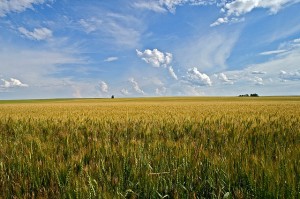
By Patty Juliuson
Fall is a wonderful time of year. The searing days of summer are finally past, and the softening sunlight and crisp air shoot a tingle of anticipation into even the most fatigued heart. It’s sweater weather and soup for dinner with the holidays just around the corner. And you know what that means- PRESENTS! I love presents… oh, wait, I digress. Fall, yes, fall.
One of the most powerful images of fall is that of the harvest. Part of my youth was spent in southern Idaho, and fall brought a flurry of work as farmers toiled to get the last of the crops in and prepare the fields for the next spring’s planting. Kids were excused from school to help with the sugar beets, and the best specimens from gardens throughout the region were proudly displayed, fresh or preserved, at the county fair. Harvest was a time to assess the outcomes of planting, rejoice in the results of determination and work and make adjustments so that next year’s crop would be even better.
Through the years, I observed enough to know this about farming: you must plant seeds in order to have a harvest. (I know, I know. I am a genius.) A farmer can stand at the edge of a field and wish for a bumper crop, but unless he’s willing to put work into his wish, all he will have in the fall is a field of crispy weeds. Another striking reflection: you reap what you sow. When a farmer sows corn seed, guess what? He harvests corn, not potatoes. It doesn’t take a degree in agriculture to recognize that. An additional stimulating fact: you reap more than you sow. One seed of our farmer’s corn can grow into a stalk with several ears, and each ear yields a lot of kernels. You get the idea.
A harvest requires you to wait. Our savvy farmer knows not to sow the seed one week and come back for the harvest the next week. Seasons pass while the farmer tends the field and waits for the crop. It takes time for the seed to germinate and grow, and even when the fruit appears, it must ripen before being collected. Harvest also requires an investment. If the farmer wants to cover his costs and prosper for another year, he makes sure he sows generously. No matter how great a farmer he is, planting only a dozen seeds won’t result in a field full of corn.
I also noticed that when it’s time for harvest, you don’t get to change your mind. It doesn’t matter if our farmer decides he’d rather have a wheat harvest; he planted corn, so he’s got corn. If he had wanted wheat, he should have planted it in the spring.
More and more often, I find that these facts about planting and harvesting apply to many aspects of life. Some people say, “What goes around comes around,” and others talk about karma; both are ways of referring to the same truth. God’s Word says, “Be not deceived; God is not mocked: for whatsoever a man soweth, that shall he also reap,” (Gal. 6:7). As we go through each day, we plant seeds. Kindness, consideration, friendliness, generosity, enthusiasm, jealousy, bitterness, stinginess, pessimism, hatred: all these fall from our thoughts, our lips and our deeds like seeds flung into a field. It’s time to stop and really consider what seeds our lifestyles, attitudes and actions introduce into the world. Think about it: what do you want to harvest?
Although the unpleasant kernels we carelessly planted in the past may still bear some unattractive fruit, it’s never too late to throw out that nasty old seed and begin sowing things that are true, honest, just, pure, of good reputation, virtuous and praiseworthy (Phil. 4:8). God’s promises are real. His Word says, “And let us not be weary in well doing: for in due season we shall reap, if we faint not,” (Gal. 6:9). Choose to plant good seeds. The harvest will come, and you will be so glad you persevered.
See you in class.
TRUE. You shall reap what you sow and that too after certain time
Wonderful!
This will give me lots to think about as I witness the changes of the harvest season around me! Interesting article.